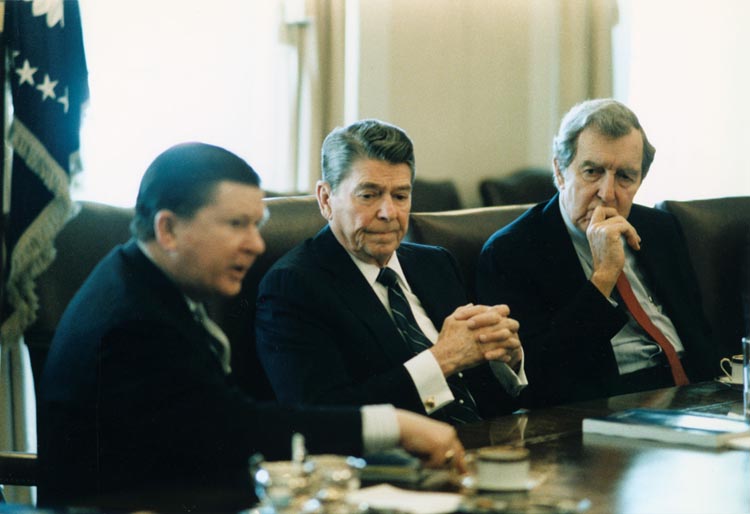Diplomacy is a political virtue favoring amicability and cooperativity over procrustean political aggression. Diplomacy strives for the common advancement of the pluralist society, one that celebrates balance and moderation rather than domination and extremism as political virtues. Contingent upon this belief is the understanding that diplomatic relations among countries undergirds the maintenance of the core elements of a pluralist civilization. However, forces within our nation’s political parties seemingly disregard this virtue as antiquated skill to be towed along party lines for their own political interests.
The virtue of diplomacy with Iran has been the subject of criticism from right-wing conservatives since the inception of talks began with P5+1 nations. The P5+1 world powers are the United Nations Security Council’s five permanent members: Russia, the United States, China, France and the United Kingdom.
Hindsight bias allows society the benefit of realizing the caustic effect bad diplomacy has on a nation that would prefer conflict, isolation and economic and military sanctions over tact diplomacy. The painstaking truth is that these effects are never unidirectional. All parties suffer the loss of whatever benefits could have been accumulated had there been mutual cooperation between parties. Some lose more than others, but the implications, nonetheless, always go both ways.
Ronald Reagan’s premiership over the Iran-Contra Affair in 1985 is a prime illustration of the debacle of such poor diplomacy. First, the Iran-Contra ordeal violated Reagan’s own campaign promise to never negotiate with terrorists or any terrorist-sponsoring countries. Yet, he secretly sold arms to Iran in violation of the embargoes and sanctions against the country. Second, the cash-for-hostages transaction resulted in the diversion of payment obtained from the deal with Iran. Reagan secretly moved the money to fund the Contras guerrillas, right-wing rebels fighting the left-wing Sandinista government of Nicaragua; an action that was in glaring violation of U.S. laws against aiding the rebel group. Either of these acts could have been avoided and Reagan’s aim realized with some constitutional diplomacy and political remissions on relations between the American government and Iran, since Reagan was already in bed with them anyway.
Despite the administration’s unconstitutional infringement of power to conduct foreign affairs with these parties and the backlash that followed from the media and from Congress, Reagan asserted no culpability.
To my point, the diplomatic conflict against Iran today is unlike what it was 30 years ago when sanctions on the country first began. Within the last seven years, the focus of all prohibitory measures surround the country’s nuclear enrichment program as opposed to the previous decades’ focus on their investments in oil and gas.
Diplomacy can be reached; indeed, it has been reached. The decision by the Barack Obama administration and P5+1 nations to resume diplomatic relations with the so called “American enemy” was a sagacious and meticulous move. Yet, somehow, the willingness to negotiate with an “enemy” rather than take our country to war with him, to the Republicans, is far more injudicious than the alternative. Why they might think that continues to baffle me.
The irony is that the improved relation with Iran continues to make significant strides while the right-wing party continues to debase the value of strong American diplomacy. Under the nuclear deal, Iran is being subjected to the most comprehensive, intrusive inspection regime ever negotiated to monitor a nuclear program. The recent conjoint prisoner-release also saw the discharge of three Americans unjustifiably held as prisoners for a combined nine-and-a-half years in Iran return to the states. When American sailors strayed into Iranian waters and were captured by Iranian authorities, rather than start another hostage crisis, instead, a few phone calls from the U.S. to Iran ensured their release within 24 hours of their capture, according to the New York Times. This is the beauty and virtue of diplomacy, and yet again, it misses the hard-liners in the U.S. Congress.
The Obama administration has been true to its principle. In fact, in response to a YouTube user question posed at a July 2007 Democratic presidential debate in regards to whether the candidates would be willing to meet separately without precondition with leaders of Iran, Syria, Cuba and the likes in order to bridge the gap that divides the country, Obama responded that he would. He added that the “notion that somehow not talking to countries is punishment to them, which has been the guiding diplomatic principle of (the George W. Bush) administration, is ridiculous.”
Unfortunately, it is the same guiding diplomatic principle that the current leading Republican presidential candidates professes their adherences to. Donald Trump, Ted Cruz and Marco Rubio want to cut all diplomatic relations with Iran. Just a few days ago, Rubio promised that on his first day in office as president, he would revoke the Iran deal without any consideration. Cruz, during the second Republican presidential debate was quoted as saying that “if I am elected president, on the very first day in office I will rip to shreds this catastrophic Iranian deal.” The leading candidates have all, in one measure or the other, promised to defy European allies and revoke the Iran Deal if elected.
Even worse, they mislead the American people by frequently conflating any possibility of talks and serious negotiations with “enemy” countries as “rewarding” the country. Diplomacy, it seems, is an antiquated skill to this group. A number of the party’s leading candidates lack the necessary temperament to command the post of president with their illicit statements and outbursts.
The Republican Party’s continual charter of hostility and fear mongering rhetoric, masked behind deception of political assertiveness, opposes all virtues of diplomacy. The hypocritical tradition of pandering to the fear and ignorance of the American people to promote a candidate’s or party’s political interest is disgusting. It is un-American. Then again, maybe diplomacy is not a virtue after all.
Andrew Adeola is a senior physiology and neurobiology and philosophy major. He can be reached at aadeoladbk@gmail.com.



